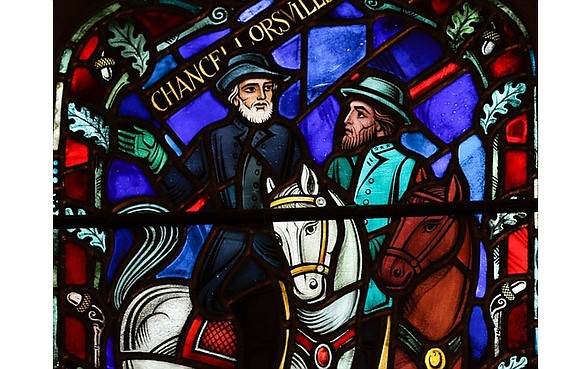Washington National Cathedral to remove windows of Confederates
9/15/2017, 10:58 a.m.
By Adelle M. Banks
Religion News Service
WASHINGTON
Following “considerable prayer and discussion” prompted by last month’s white supremacist protest in Charlottesville, the Washington National Cathedral has decided to remove stained-glass windows honoring two Confederate generals.
A statement released Sept. 6 read that “after considerable prayer and discussion,” the cathedral’s board, or chapter, voted a day earlier “to immediately remove the windows.”
“The Chapter believes that these windows are not only inconsistent with our current mission to serve as a house of prayer for all people, but also a barrier to our important work on racial justice and racial reconciliation,” stated a letter from Washington Episcopal Bishop Mariann Edgar Budde, Washington National Cathedral Dean Randy Hollerith and Cathedral Chapter Chair John Donoghue.
In August 2016, the cathedral quietly removed panels depicting the Confederate flag and replaced them with red and blue panes to match surrounding glass. But the overall glass and stone bays honoring Confederate Generals Robert E. Lee and Thomas “Stonewall” Jackson remained.
“These windows will be deconsecrated, removed, conserved and stored until we can determine a more appropriate future for them,” the leaders wrote. “The window openings and stone work in the Lee-Jackson Bay will be covered over until we determine what will go in their place.”
The side-by-side windows honoring the Confederate generals were added in 1953 with the support of the United Daughters of the Confederacy, a group that sought to honor the memory of veterans who fought for the South.
The church officials said they hope the windows may serve to be a teaching tool elsewhere but were no longer appropriate for the cathedral’s sanctuary.
“We recognize that there are people of goodwill who disagree with our decision, and also others who have been hurt or confused by the amount of time it took us to reach it,” the leaders concluded. “We trust, however, that what unites us in Christ is greater than our differences.”







